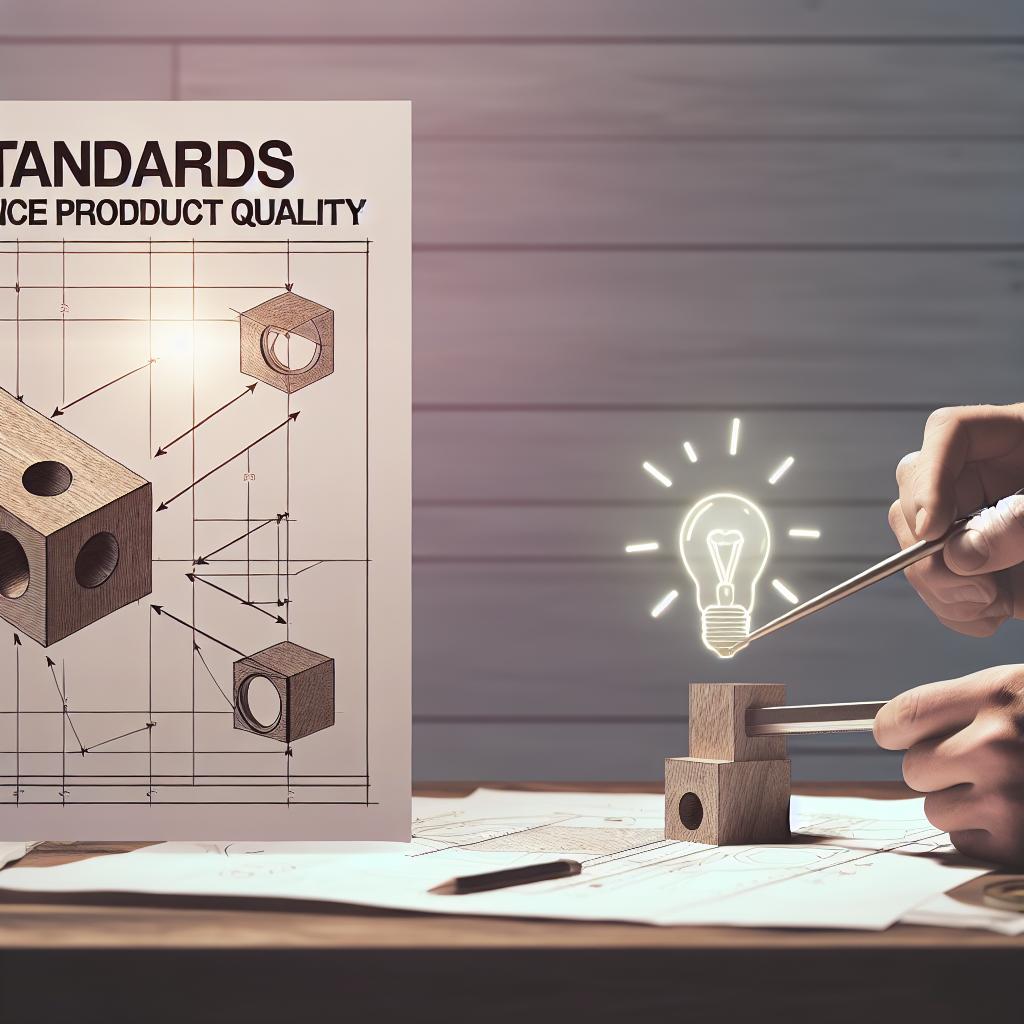Introduction
Standards play a pivotal role in ensuring the quality of products across various industries. By establishing a consistent framework for production, assessment, and quality management, standards help maintain uniformity, reliability, and safety. This article delves into how standards influence product quality, benefiting both manufacturers and consumers.
Defining Standards
In the context of product manufacturing, standards are agreed-upon guidelines designed to ensure materials, processes, and goods meet specific criteria. These standards can be national, such as those set by the American National Standards Institute (ANSI), or international, like those established by the International Organization for Standardization (ISO). By adhering to these guidelines, producers can achieve a level of quality that meets or surpasses customer expectations.
Standards constitute the backbone of the manufacturing process, offering detailed requirements and guidance to ensure products meet certain specifications. Such specifications are vital in today’s interconnected and globalized market, enabling trade and facilitating mutual understanding between entities from different countries. These frameworks promote a shared language across industries, which is instrumental in achieving clarity and uniformity when it comes to product specifications, testing procedures, and quality benchmarks.
Ensuring Consistency
One of the primary ways standards impact product quality is by fostering consistency in production. When manufacturers follow standardized procedures, they are more likely to produce items that meet predefined specifications. This consistency is crucial for both mass production and custom manufacturing. Products that perform reliably across different batches are more appealing to consumers, as they can trust in the quality of the goods they purchase.
Consistency in production is not merely about meeting technical specifications; it also influences consumer perceptions and market confidence. In mass production scenarios, the ability to replicate a product that consumers expect each time is crucial. It helps companies build a brand reputation that relies on predictability and reliability, which, in turn, enhances customer loyalty and satisfaction.
Enhancing Safety
Safety is another critical aspect of product quality that standards influence significantly. By implementing specific safety requirements, standards help manufacturers minimize risks associated with their products. For example, electrical products that adhere to relevant safety standards are less likely to cause short circuits or fires. Consumers benefit from knowing that the products they use daily meet industry-approved safety standards, which reduces accidents and enhances trust.
Safety standards are rigorously developed and updated to incorporate the latest scientific research and technological advancements. They guide manufacturers not only in design but also in the testing and evaluation processes, ensuring that every aspect of a product’s lifecycle considers user safety. This rigorous process builds consumer confidence and is reflected in lower incidences of product recalls and liability claims.
Facilitating Compliance
Compliance with legal and regulatory requirements is a significant concern for manufacturers. Standards provide a blueprint for meeting these requirements effectively. By aligning their operations with existing standards, companies can ensure that they comply with relevant laws, reducing the risk of legal issues and penalties. This alignment also simplifies the certification process, facilitating smoother market entry in different regions.
In many industries, meeting standards is not merely optional but a legal requirement, making them an indispensable element in strategic business planning. Compliance aligns with not only legal mandates but also customers’ ethical and societal expectations, creating added value and supporting sustainable business operations. This alignment provides businesses with a strategic advantage, easing the path to new markets and customer bases.
Impact on Innovation
While standards primarily serve to maintain quality and safety, they also play a vital role in promoting innovation. By providing a solid foundation for product development, standards allow companies to focus on enhancing product features and functionality rather than reinventing basic components. This focus on innovation can lead to improved products and services, giving companies a competitive advantage in the marketplace.
Standards help streamline innovation by providing established parameters within which companies can explore new ideas. The reduced uncertainty allows businesses to allocate resources more effectively to areas of improvement and exploration. By assuming a known baseline of quality and performance, companies are free to push the boundaries of technology and creativity, leading to groundbreaking products.
Global Trade and Market Access
Standards also have a significant impact on global trade and market access. Products that adhere to international standards can easily enter foreign markets, as these standards often bridge the gap between different regulatory frameworks. For instance, a company that produces goods according to ISO standards can access markets in various countries without significant modifications. This access facilitates easier and wider distribution of high-quality products.
International standards serve as a tool to encapsulate best practices from around the world, creating a unified approach to technical and quality specifications. This global recognition not only simplifies the trade process but also enhances the product’s acceptability in diverse consumer markets, contributing to economic growth and international relations. By providing a harmonized basis for business practices, these standards make it easier for companies to compete globally.
Conclusion
In summary, standards are an essential component in shaping the quality of products across industries. By ensuring consistency, enhancing safety, facilitating compliance, encouraging innovation, and enabling global trade, standards provide a comprehensive framework that benefits both producers and consumers. As industries continue to evolve, the role of standards in maintaining and elevating product quality will likely become even more crucial.
The growing complexity of modern products and intersecting industries necessitates adherence to robust standards systems to maintain efficacy and organization. As technology and consumer demands continue to grow and diversify, standards will play a fundamental role in bridging gaps, protecting both enterprises and consumer interests, and enhancing the quality of life worldwide.
For further information on standards, consider visiting organizations like the International Organization for Standardization or American National Standards Institute.

